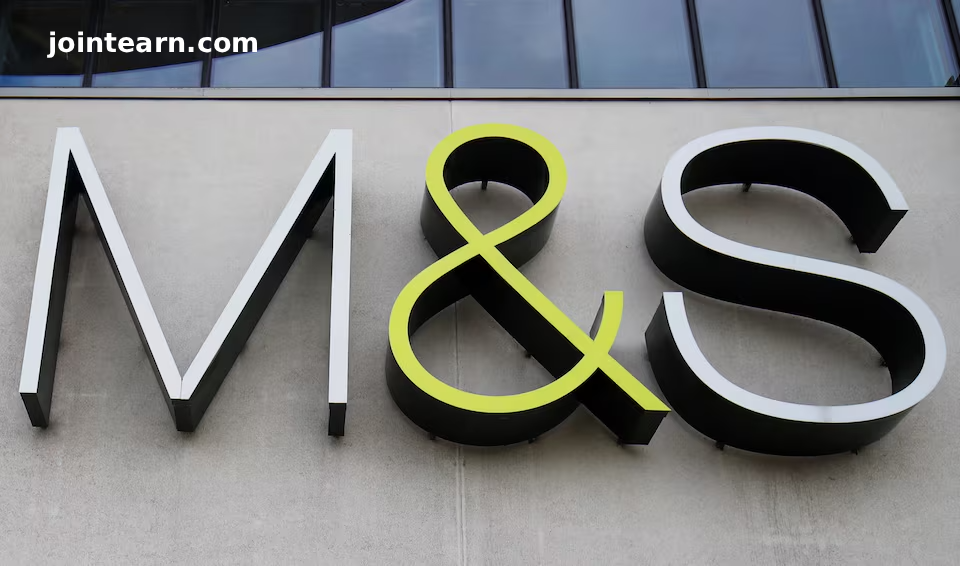
LONDON — British retailer Marks & Spencer (M&S) (MKS.L) reported a sharp 55.4% drop in first-half profit, as the fallout from a major cyberattack in April disrupted its operations and forced the suspension of online clothing sales for several weeks.
The company, one of the most recognized names on the UK high street, said the cyber incident caused significant challenges across its business, affecting both online trading and food availability.
Despite the setback, CEO Stuart Machin expressed confidence that the group will recover by the end of its financial year in March 2026.
“In the second half, we expect profit to be at least in line with last year. This should give us a springboard into the new financial year and set M&S up for further growth,”
Machin said.
Financial Impact of the Cyber Hack
For the six months ending September 27, M&S reported an adjusted pre-tax profit of £184.1 million ($247.1 million)—down from £413.1 million a year earlier. However, sales rose 22.1% to £7.97 billion, reflecting ongoing customer demand and resilience in its core business.
In May, the retailer estimated the cyberattack could cost up to £300 million in lost operating profit for the full year. M&S has managed to offset part of this through £100 million in insurance proceeds, nearly balancing the £101.6 million in cyber-related costs already booked.
Operational Disruptions and Recovery
The attack forced M&S to suspend online clothing orders for seven weeks and halt click-and-collect services for nearly four weeks. Store operations also suffered from product shortages, additional waste, and increased logistics costs.
The disruption came just as M&S was beginning to benefit from its 2022 turnaround plan, which had led to the retailer’s strongest profit performance in more than 15 years during the 2024/25 financial year.
Despite the turbulence, M&S shares have gained 2% so far in 2025, recovering most of the losses sustained immediately after the cyber incident.


Leave a Reply